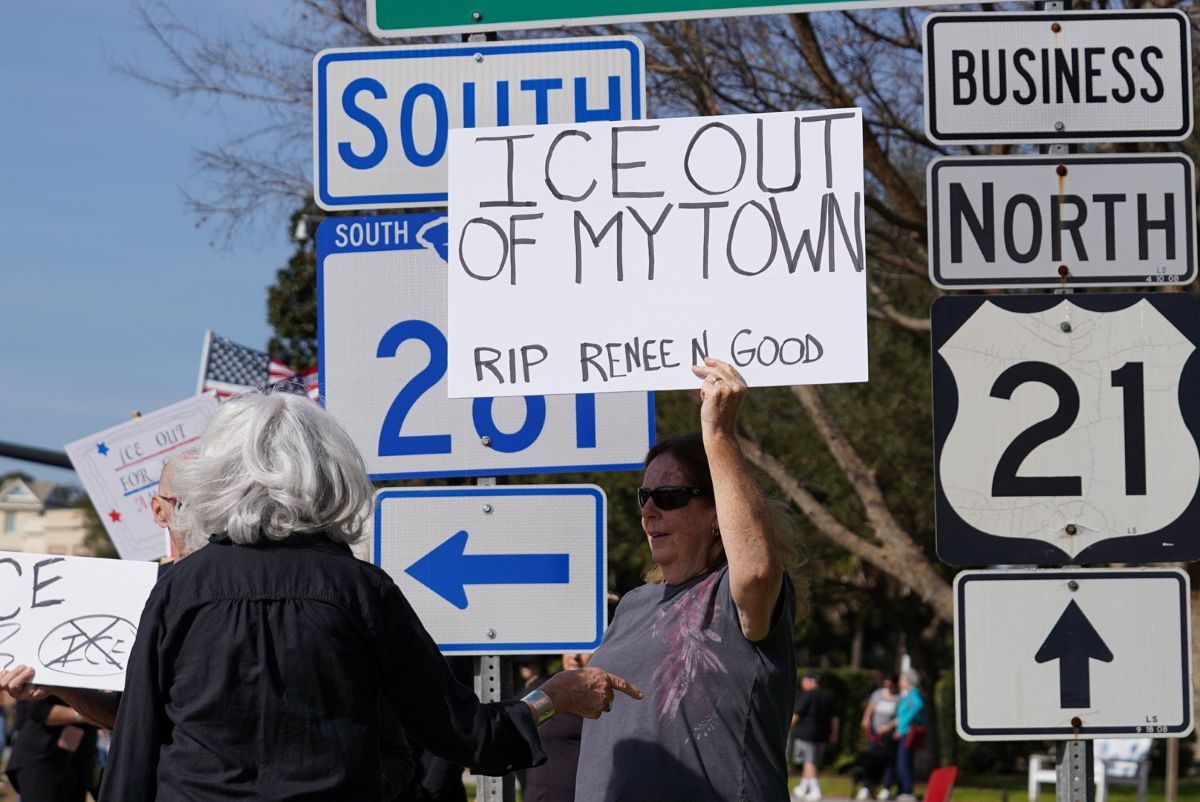This is the final article of a series of 12 articles on what citizens should know about policing, use-of-force, risks, and challenges citizens and police officers face today.
As the author of this series, I hope you have found the past 11 columns to be informative and provocative. More importantly, I pray that these articles have helped to promote understanding, cooperation, trust, and respect between citizens and law enforcement.
This final article is a notional list of things that I believe most COPs wish that citizens knew and would do to help promote safety, cooperation, crime prevention, and trust between our police and the public. Police Officers wish:
First, Citizens knew that when a police officer first meets you, except in a very few cases, the officer does not know you. COPs also do not know if you: are armed, mentally ill, under the influence, happy, angry, under great stress, going through a divorce, grieving, just loss your job, have a police record, are a member of a gang, just committed a crime, or are on parole. Expect officers to be cautious when first meeting you and please obey their requests until the officer knows who you are and what you are doing.
Second, Citizens knew that COPs are sworn to serve and protect, and that they entered this high stress, low paying, and high-risk law enforcement profession based a sincere and powerful desire to serve —- and not put him or herself, you, or others in danger.
Third, Citizens knew that in a routine traffic stop, an officer is taught to be as friendly as possible and to say to you something like this when he or she comes up to your vehicle, “Good morning sir or mam. I am officer XXXXXXX with the YYYYYY Police Department. The reason I stopped you is you were driving 45 miles per hour in a 25 MPH zone. Is there some reason you are driving so fast today?” Remember, police officers are taught to understand that if you are rushing someone to a hospital that you may be driving fast. If you are not driving under the influence and confirm you are rushing your wife to the hospital, because she is in labor or he or she is seriously injured or ill, the officer will assist you as much as he or she can (first aid, call for emergency medical care, etc.) and will not give you a ticket and allow you to continue quickly with just a warning to slow down and arrive alive.
Fourth, Citizens knew that if a COP makes a felony traffic stop of you and your vehicle, the officer suspects (and in many cases has probable cause) that you or your passengers or both or your vehicle has been involved in a felony (serious) crime and that you or your passengers may dangerous. You will be required to obey all officer commands, probably be handcuffed and searched, and detained until the officer can determine if you are a suspected criminal and if your vehicle is not stolen or has been used in a crime. You can also expect for your vehicle to be searched for weapons and illegal drugs, explosives, or other illegal items.
Fifth, Citizens would be patient until the officer can figure out what is going on. Officers are taught to be polite and use words like please, thank you, you are welcome, and yes sir. If citizens are patient, compliant, and non-threatening, they have the best chance for the situation to be settled peacefully, quickly, and with no force used. Most officers know that a verbal warning or warning ticket will do what the officer wants done, that is raise your level of awareness of driving safely. Officers are sympathetic to the fact that even a small fine or requirement for you to go to court could be disastrous for you financially. Officers know that if you do not have the money to pay a $200.00 traffic violation, cannot get off work to go to court, and miss court, a warrant will be issued for your arrest —— and the officer does not want that to happen to you.
Sixth, Citizens understood that officers are human too and make far less money than most other professions, get ill, have a higher-than-average divorce rate and suicide rate, get scared, and suffer from higher-than-average heart disease and PTSD rates. Officers are under stress almost constantly and get in vehicle accidents because they drive over 50,000 miles per year in all kinds of weather — sometimes in hot pursuits, and get injured or killed while working near highways far more than others. Officers are constantly frustrated and saddened with being the mental illness first responders and frequently the only help mentally ill people get. Officers are continuously witness to our poorest, most victimized, least educated, most unhealthy, and most disadvantaged members of society. They are witness to more human tragedy than almost any other profession.
Seventh, Citizens knew that officers are constantly aware that they are in a profession that is unforgiving of the smallest mistake and that if they make a serious error with force or applying the law, they will be required to be retrained or severally punished or demoted or fired or sued in civil court or criminally charged, or all of these remedies will be used on the officer.
Eighth, Citizens understand that police officers do not create poverty, unequal education and housing, slow and unjust courts, an inadequate mental health system, but COPs do promote and support remedying these problems.
Ninth, Citizens would attend a citizen’s police academy and promote the enrollment of minority and other youth to join a Police Explorer Program and seek a career in public safety.
Tenth, Citizens would not drink and drive, not use or abuse legal or illegal drugs, wear seat belts, wear motorcycle and bike helmets, and join a neighborhood watch program.
Eleven, Citizens would contact their congressmen and ask them to support a reasonable police and criminal justice system reform bill that:
Provides robust inpatient and outpatient treatment of the mentally ill.
Expands rehabilitation and training for those convicted of crimes.
Requires a completed background check of all commercial weapon sales.
Bans assault rifle sales and large capacity (more than 10 rounds) magazines, except to the military and police.
Ensures bad actor COPs are identified, weeded out quickly, and debarred from law enforcement service.
Creates a national police registry to compile data on complaints and records of police misconduct.
Establish new reporting requirements, including use of force, officer misconduct, and routine practices.
Creates uniform accreditation standards for law enforcement agencies.
Requires officers to complete training on racial profiling, implicit bias, and the duty to intervene when another officer uses excessive force.
Creates uniform accreditation standards for law enforcement agencies and requires law enforcement officers to complete training on racial profiling, implicit bias, and the duty to intervene when another officer uses excessive force.
Grants administrative subpoena power to the Department of Justice (DOJ) in pattern-or-practice investigations.
Larry Dandridge is an honors graduate of three police academies and a DoD Counter Terrorism course graduate. He served as a police officer and deputy sheriff in AL and MO. He has also worked as a consultant with the Federal Law Enforcement Training Center in GA and SC, and the Military Police and Customs operations in TX. An accomplished writer and motivational speaker, the owner of TVV Publishing, a retired Army Test Pilot, the author of the award-winning BLADES OF THUNDER (book One), a retired Aerospace Industry Region Manager, a past University Business, Writing, and Aeronautics Instructor, and volunteer Patient Adviser at the RHJ VA Medical Center, he writes two columns, as a free-lance writer, for the ISLAND NEWS, the Veterans Benefits Column and the What Citizens Should Know About Policing Column. You can contact Larry at his email, LDandridge@earthlink.net.
EDITOR’S NOTE
This is column 12 of a 12-column series on what citizens should know about police officers, use of force, and challenges the police and citizens face. Columns 1 through 11 introduced the series by answering the questions:
- What are the risks involved in police work?
- How does a COP (Constable on Patrol) decide on what level of force to use?
- When can a police officer use deadly force?
- When can deadly force be used on a fleeing felon?
- Do life and death decisions made by police really have to be made so quickly?
- What does the Beaufort County Sheriff’s Office do for Beaufort County?
- Do police officers take care to avoid hurting innocent bystanders?
- Do police officers have to retreat when facing a dangerous person?
- Can a police officer be unfit to serve, even if they do not break the law?
- Do police officers have to retreat when facing a dangerous person?
- Can a police officer be unfit to serve, even if they do not break the law or violate department written policies?
- Why do police officers not hot pursue and chase down every person who runs from them in a vehicle?
- Why do police officers sometimes use choke holds on people?
- Why do the police not shoot guns and other weapons out of people’s hands?
- Why do police sometimes use deadly force on people brandishing a Fake Gun?
- Why do the police not read everyone their Miranda rights?
- How does a police officer deal with a person with a knife or other edged weapon?
- Why do many police officers have second jobs?
- How much training does a police officer get?
- How many police departments are there and how many COPS are on the job per 1,000 citizens?
- Are all police departments certified by the Commission on Accreditation for Law Enforcement Agencies (CALEA)?
- How thorough are the background checking, screening, testing, and interviewing, of police recruits and officers transferring from one department to another?
- Why do police departments need armored cars and other military types of equipment?
- Are Driving While Impaired (DWI) and Driving Under the Influence (DUI) really all that serious crimes?
- What is qualified immunity?
These columns are not meant to replace carefully reading local, county, state, and federal law or the need for a lawyer when seeking legal advice.
Larry Dandridge is not an employee of THE ISLAND NEWS and his opinions are his alone. Readers should rely on their local police and sheriff’s departments, federal law enforcement agencies, and their attorneys for all law enforcement information and legal advice. Although every precaution has been taken in the preparation of these articles, the publisher and author assume no responsibility for errors or omissions. Neither is any liability assumed by the author or THE ISLAND NEWS for damages resulting from the use of information contained herein.







